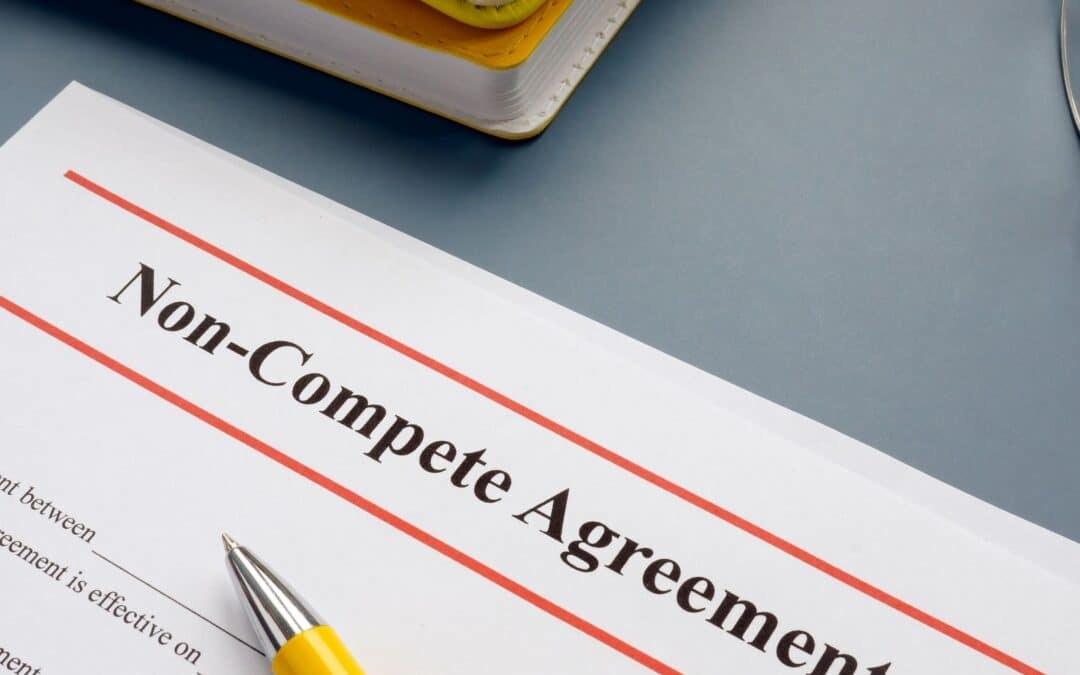Non-compete laws are an essential aspect of employment law in Illinois, and both employers and employees need to understand their rights and obligations under these laws. In recent years, Illinois has implemented significant changes to its non-compete laws, which have had a substantial impact on employers and employees in the state. As a Chicago personal injury and employment law firm, we have seen firsthand the importance of understanding non-compete laws in Illinois. In this article, we will provide an overview of Illinois’ non-compete laws, including the recent changes and what they mean for employers and employees.
(The Impact of Artificial Intelligence on Employment Law)
What are Non-Compete Laws?
Non-compete laws, also known as restrictive covenants, are contracts between an employer and employee that restrict the employee’s ability to work for a competitor or start their own business in the same industry. These employment laws are designed to protect an employer’s business interests, such as trade secrets and customer relationships, by preventing former employees from using this information to compete against their former employer.
Illinois’ Non-Compete Laws
In Illinois, non-compete laws are governed by the Illinois Freedom to Work Act, which was enacted in 2021. This law imposes significant restrictions on the use of non-compete agreements in Illinois. Under the law, non-compete agreements are only enforceable if they meet certain requirements, such as being in writing, being signed by the employee, and providing the employee with adequate consideration.
Recent Changes to Illinois’ Non-Compete Laws
In 2021, Illinois implemented significant changes to its non-compete laws. Under the new law, non-compete agreements are only enforceable if they meet certain requirements, such as being in writing, being signed by the employee, and providing the employee with adequate consideration. The law also imposes restrictions on the scope and duration of non-compete agreements. For example, non-compete agreements cannot last for more than two years, and they cannot prohibit an employee from working in a specific industry or profession.
What do Employers Need to Know?
Employers in Illinois need to be aware of the recent changes to the state’s non-compete laws. Here are some key takeaways for employers:
Ensure that Non-Compete Agreements are in Writing
Non-compete agreements must be in writing and signed by the employee. Employers should ensure that they have a written non-compete agreement that meets the requirements of the Illinois Freedom to Work Act. The agreement should clearly outline the terms of the non-compete, including the scope and duration of the agreement. Employers should also ensure that the agreement is signed by the employee before they begin working. This can help prevent disputes down the line and ensure that the agreement is enforceable.
Provide Adequate Consideration
Non-compete agreements must provide adequate consideration to the employee. This means that the employer must provide something of value to the employee in exchange for their agreement not to compete. Adequate consideration can take many forms, including a signing bonus, additional vacation time, or a promotion. Employers should ensure that the consideration they provide is sufficient to support the non-compete agreement. If the consideration is not sufficient, the agreement may not be enforceable.
Ensure that Non-Compete Agreements are Reasonable
Non-compete agreements must be reasonable in terms of their scope and duration. Employers should ensure that their non-compete agreements do not last for more than two years and do not prohibit an employee from working in a specific industry or profession. The agreement should also be limited to a specific geographic area, such as the Chicago metropolitan area. Employers should ensure that the agreement is tailored to the specific needs of their business and does not impose undue restrictions on the employee.
What do Employees Need to Know?
Employees in Illinois need to be aware of their rights under the state’s non-compete laws. Here are some key takeaways for employees:
Understand the Terms of Your Non-Compete Agreement
Employees should understand the terms of their non-compete agreement, including the scope and duration of the agreement. Employees should also ensure that they understand what is expected of them under the agreement. This includes understanding what activities are prohibited under the agreement and what the consequences are for violating the agreement. Employees should carefully review the agreement before signing it and ask questions if they are unsure about any of the terms.
Know Your Rights
Employees have rights under the Illinois Freedom to Work Act, including the right to challenge the enforceability of a non-compete agreement. Employees should know their rights and seek legal advice if they have concerns about their non-compete agreement. Employees may also have rights under other laws, such as the Illinois Wage Payment and Collection Act. Employees should be aware of their rights under these laws and seek legal advice if they have concerns.
Seek Legal Advice
Employees should seek legal advice if they have concerns about their non-compete agreement. An experienced employment law attorney can help employees understand their rights and options under the Illinois Freedom to Work Act. An attorney can also help employees negotiate the terms of their non-compete agreement or challenge the enforceability of the agreement. Employees should seek legal advice before signing a non-compete agreement or if they have concerns about an existing agreement.
Conclusion
Illinois’ non-compete laws are complex and constantly evolving. Both employers and employees need to understand their rights and obligations under these laws. By understanding the recent changes to Illinois’ non-compete laws, employers and employees can ensure that they are in compliance with the law and avoid costly litigation.
If you’re looking for an experienced Chicago personal injury lawyer to help navigate your claim, we will fight assiduously for your right to the compensation you deserve. Call Bizzieri Law Offices at 773.881.9000. The case evaluation is free, and we never charge a fee unless we recover damages for you.

